Little did Joanne Simpson know, when she took a class of students on a mission trip to Guatemala, that it would change the direction of her life. But, as I remember her telling it, it was only a short time later that she left her post as principal at the Christian school she had founded in Alaska, to help distribute food, clothing and other items to widows and orphans in Guatemala City. That work eventually grew into Shadow of His Wings orphanage and school. It shelters around 40 girls from one to nineteen years old, rescued form the streets (often prostitution) of Guatemala City.
The example of people like Joanne spur me on to love and good works. (I love how various translations cast a different light on that bit about stirring up: "studying how we may stir up (stimulate and incite) to love and helpful deeds and noble activities"[Amp]; "spur one another on toward love and good deeds" [NIV]; "motivate one another to acts of love and good works" [NLT]; and "Let's see how inventive we can be in encouraging love and helping out... spurring each other on"[Msg].)
I know I probably won't be rushing off to some distant place to start an orphanage. But the story of Joanne leaving the security of a North American lifestyle to serve in a way that was, at first, completely unrelated to her experience and training is a challenge to me to break out of the mold of conventional thinking. The way God grew things from an idea of a home for orphans to the full-fledged complex it is today shows how God can create big things from small beginnings.
The world is full of people like Joanne — people in whose lives such obedience in doing works of love and kindness is fleshed out. A friend of mine spends time helping a newly widowed lady get to appointments, shop etc. A retired dentist and his wife take a regular turn at working at the Salvation Army. These folks don't broadcast their commitments, probably don't even realize anyone is watching. But by their quiet example, they are accomplishing a double-whammy. They are serving others while stirring up onlookers, like me, to join them.
As Joanne says "There truly never is an end to what the Lord will do when we just take one step of obedience toward His will and His way" (quoted from a note at the back of the 2010 Shadow of His Wings calendar).
I ask myself, what will I do today in the department of "stirring up love and good deeds" in others? What will you?
PRAYER: Dear God, thank You for the example of obedience and love I witness in many of the lives around me. Help me to obey Your nudges to serve and show love to those who cross my path today. Amen.
MORE: More goads
Kathleen Gibson writes about the impact of the kind deeds and acts of love shown her and her family when her husband came down with West Nile after being bit by a mosquito in the summer of 2007. She says:
"In the midst of the maelstrom that the mosquito manufactured, and in its ongoing two-year aftermath, Rick and I have learned something we previously knew primarily from the other end: As Christians, we make an immense difference in the lives of people in crisis when we don't shun the small things we can do, because of the large things we can't.
What does that mean? It means we don't refuse to send a quick note or e-mail because we don't have time to write a long letter. It means we don't neglect sharing a wide smile just because we have nothing else to offer. Or forget about popping in for five minutes because we're too rushed to spend an hour." (Read entire "Time for a Little Good Press.")
********
Unless otherwise noted all Scripture quotations are taken from the New King James Version®. Copyright © 1982 by Thomas Nelson, Inc. Used by permission. All rights reserved.
Scripture quotations marked AMP are taken from the Amplified® Bible,
Copyright © 1954, 1958, 1962, 1964, 1965, 1987 by The Lockman Foundation
Used by permission." (www.Lockman.org).
Scripture quotations marked NIV are taken from THE HOLY BIBLE, NEW INTERNATIONAL VERSION®, NIV® Copyright © 1973, 1978, 1984, 2011 by Biblica, Inc.® Used by permission. All rights reserved worldwide.
Scripture quotations marked NLT are taken from the Holy Bible, New Living Translation, copyright © 1996, 2004, 2007 by Tyndale House Foundation. Used by permission of Tyndale House Publishers, Inc., Carol Stream, Illinois 60188. All rights reserved.
Scripture quotations marked MSG are taken from The Message. Copyright © 1993, 1994, 1995, 1996, 2000, 2001, 2002. Used by permission of NavPress Publishing Group.
*********
Do your 8-12-year-olds have daily devotions? Point them to Bible Drive-Thru.

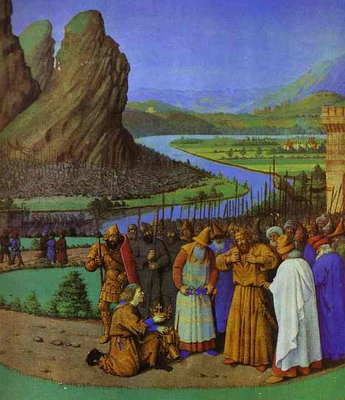
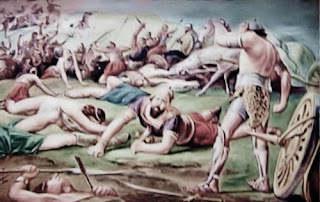





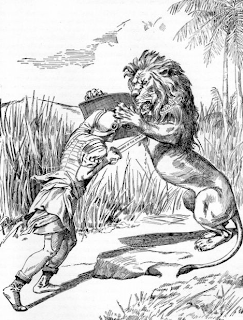



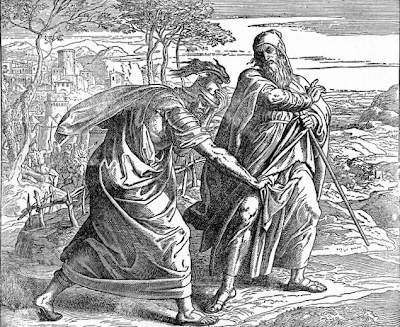
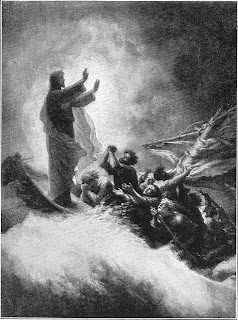



.jpg)

